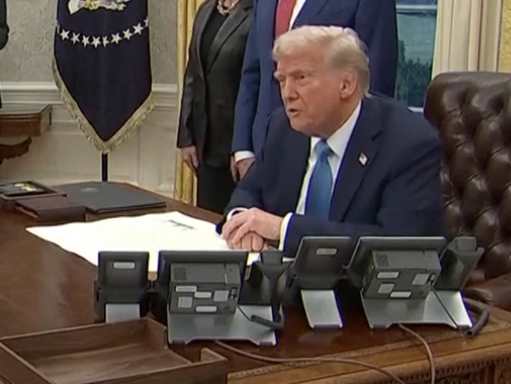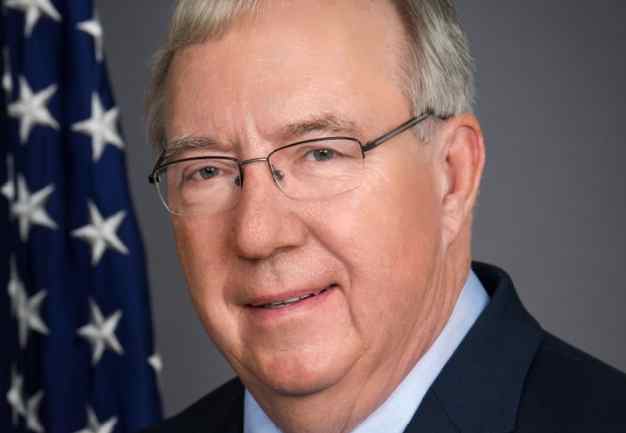“Of course Trumpers want to dismantle the only agency formed in decades dedicated to giving consumers a fair shake in a predatory economy,” one journalist said in response to reporting on Republican plans.
Just hours after U.S. President Donald Trumpnamed a labor secretary nominee seen by some union leaders and advocates as genuinely pro-worker, The Washington Post on Saturday detailed what the incoming administration and Republican Congress have planned for a federal agency designed to protect everyday Americans from corporate abuse.
Initially proposed by Sen. Elizabeth Warren (D-Mass.) while she was still a Harvard Law School professor, the Consumer Financial Protection Bureau (CFPB) was created by the Dodd-Frank Wall Street Reform and Consumer Protection Act, which Congress passed in response to the 2007-08 financial crisis.
The first Trump administration was accused of “gutting the CFPB and corrupting its mission.” However, as the Post noted, “its current Democratic leader, Rohit Chopra, has been aggressive” in his fights for consumers, working to get medical debt off credit reports and crack down on “junk fees” for everything from bank account overdrafts and credit cards to paycheck advance products—efforts that have drawn fierce challenges from the financial industry.
[perfectpullquote align=”right” bordertop=”false” cite=”” link=”” color=”” class=”” size=””]”Working- and middle-class people who voted for Trump did so for many reasons, but you’d be hard-pressed to find any who did so because they want higher overdraft fees.”[/perfectpullquote]
Chopra, an appointee of outgoing President Joe Biden, isn’t expected to stay at the CFPB, but Trump’s recent win hasn’t yet halted bold action at the agency. On Thursday, it announced plans “to supervise the largest nonbank companies offering digital funds transfer and payment wallet apps,” which is set to impact Amazon, Apple, Block, Google, PayPal, Venmo, and Zelle, unless the Trump administration shifts course.
The Post reported that Republican leaders “intend to use control of the House, Senate, and White House next year to impose new restrictions on the agency, in some cases permanently,” and “early discussions align the GOP with banks, credit card companies, mortgage lenders, and other large financial institutions.”
According to the newspaper:
“There will be a pretty significant change from the direction the agency has been going in, and I think in a positive way,” predicted Kathy Kraninger, who led the CFPB during Trump’s first term. She now serves as chief executive of the Florida Bankers Association, a lobbying group whose board of directors includes top executives from Bank of America, JPMorgan Chase, PNC, and Truist.
Aides on Trump’s transition team have started considering candidates to lead the CFPB who are expected to ease its oversight of banks, lenders, and tech giants. The early short list includes Brian Johnson, a former agency official; Keith Noreika, a banking consultant and former regulator; and Todd Zywicki, a professor at George Mason University’s law school who has previously advised the bureau, according to four people familiar with the matter.
“Of course Trumpers want to dismantle the only agency formed in decades dedicated to giving consumers a fair shake in a predatory economy,” Katrina vanden Heuvel, The Nation‘s editorial director and publisher, said in response to the reporting—which came just a day after Forbes similarly previewed “big changes coming to Elizabeth Warren’s CFPB” when Trump returns.
“The number of CFPB regulatory advisories and enforcement actions will likely shrink” and “bank mergers and acquisitions could see a boost too,” Forbes highlighted. “Even more noteworthy, the CFPB’s funding structure could be at increased risk,” with some congressional Republicans considering the reconciliation process as a path to forcing changes, following the U.S. Supreme Court’s May decision that allowed the watchdog to keep drawing money from the earnings of the Federal Reserve System.
“Changing the CFPB’s funding structure would be an uphill battle since it would be perceived by many as an attempt to take the bureau’s budget to zero,” the magazine noted. “But the concept ‘has been on every wish list I’ve seen from House Republicans for the last 10 years or more since its creation,’ says a former Capitol Hill staffer who has worked with the House Financial Services Committee.”








